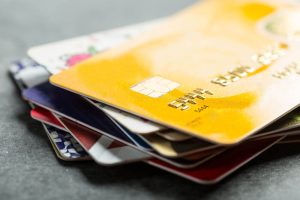Impulsive buying is a common habit that many of us fall victim to, often without even realizing it. The thrill of a spontaneous purchase can be tempting, but it often leads to buyer’s remorse and financial stress. In this blog post, we will delve into the pitfalls of impulsive buying and share effective tips on how to avoid these spur-of-the-moment decisions to become a more conscious consumer.
The occasional splurge may seem harmless, yet frequent impulsive purchases can wreak havoc on your budget. Addressing this habit starts with recognizing how often it happens and what triggers it. By identifying these patterns, you can start implementing strategies to curb the urge and make shopping a more deliberate and satisfying experience.
The danger of impulsive shopping

Impulsive shopping can derail your financial plans faster than you might anticipate. When left unchecked, it gradually builds up to significant financial stress. Often, these purchases aren’t budgeted for, leading to a strain on your finances that can result in debt and the inability to meet more critical financial obligations.
Beyond financial implications, impulsive buying can interfere with your mental well-being. The habit creates a cycle of instant gratification followed by regret, impacting your emotional health and self-perception. When you buy on impulse, you’re often not thinking of long-term benefits, which leads to a collection of unnecessary items cluttering your space and mind.
Identify your triggers
The initial step in curbing impulsive purchases is to recognize what prompts these actions. Various factors can trigger the urge to shop, including emotional states like stress or excitement, social influences, and the appeal of sales and discounts.
To combat this, keep a journal or note in your phone whenever you feel the urge to buy something impulsively. Describe what you’re feeling and the circumstances surrounding the urge. By identifying the patterns, whether it’s a coping mechanism after a bad day or due to social media influences, you can develop healthier ways to deal with these triggers.
Practice mindful shopping
Mindful shopping is a powerful technique in combating impulsivity. It involves making deliberate choices and being fully present during the shopping experience. Before heading out or browsing online, create a list of items you truly need and stick to it. This simple tactic helps maintain focus and limits unplanned purchases.
Additionally, give yourself a waiting period before making a purchase. This could be 24 hours or even a week. During this time, consider if the item is a want or a need and how it fits into your financial goals. Often, you’ll find that the initial urge fades, and you can make a more reasoned decision.
How to make smart purchases
Besides curbing impulsive habits, learning to make smart purchases is essential. This involves a strategic approach to shopping where you not only monitor what you buy but also how and when you buy it. Efficient planning and research are crucial components in enhancing your purchasing skills.
Getting into the habit of comparing prices and seeking value rather than immediacy is beneficial. Ensure you understand the full value of a product by reading reviews and evaluating its necessity in your life. This due diligence can save you from future regret and financial strain.
Create a budget and stick to it
A comprehensive budget is your secret weapon in preventing unnecessary purchases. Outline all your essential expenses and set aside a designated amount for discretionary spending. By having a clear picture of your finances, you’re less likely to make purchases that throw your budget off balance.
Review your budget regularly and adjust as necessary. It should account for not only immediate needs but also savings and potential emergency expenses. This financial blueprint gives you the confidence and discipline needed to resist impulsive temptations and make intentional choices that align with your goals.
Use cash instead of credit
One practical tip to avoid impulsive spending is to use cash instead of credit cards. This tangible form of payment makes the act of spending more real and consequential. You’re forced to physically handle money and witness it deplete, which can help curb unnecessary purchases.
Limit your card use to planned expenses only and carry only enough cash to cover your budgeted purchases. This approach fosters discipline and forces you to think twice before making a purchase, steering you away from emotional and impulsive buying decisions. Making conscious decisions is key to overcoming impulsive shopping habits.





